第25章
Franklin for negotiating treaties of commerce with foreign nations, and I was elected to that duty. I accordingly left Annapolis on the 11th. Took with me my elder daughter then at Philadelphia (the two others being too young for the voyage) & proceeded to Boston in quest of a passage. While passing thro' the different states, I made a point of informing myself of the state of the commerce of each, went on to New Hampshire with the same view and returned to Boston. From thence I sailed on the 5th. of July in the Ceres a merchant ship of Mr. Nathaniel Tracey, bound to Cowes. He was himself a passenger, and, after a pleasant voyage of 19. days from land to land, we arrived at Cowes on the 26th. I was detained there a few days by the indisposition of my daughter. On the 30th. we embarked for Havre, arrived there on the 31st. left it on the 3d. of August, and arrived at Paris on the 6th. I called immediately on Doctr. Franklin at Passy, communicated to him our charge, and we wrote to Mr. Adams, then at the Hague to join us at Paris.
Before I had left America, that is to say in the year 1781. Ihad received a letter from M. de Marbois, of the French legation in Philadelphia, informing me he had been instructed by his government to obtain such statistical accounts of the different states of our Union, as might be useful for their information; and addressing to me a number of queries relative to the state of Virginia. I had always made it a practice whenever an opportunity occurred of obtaining any information of our country, which might be of use to me in any station public or private, to commit it to writing. These memoranda were on loose papers, bundled up without order, and difficult of recurrence when I had occasion for a particular one. I thought this a good occasion to embody their substance, which I did in the order of Mr. Marbois' queries, so as to answer his wish and to arrange them for my own use. Some friends to whom they were occasionally communicated wished for copies; but their volume rendering this too laborious by hand, I proposed to get a few printed for their gratification. I was asked such a price however as exceeded the importance of the object. On my arrival at Paris I found it could be done for a fourth of what I had been asked here. I therefore corrected and enlarged them, and had 200. copies printed, under the title of Notes on Virginia. I gave a very few copies to some particular persons in Europe, and sent the rest to my friends in America. An European copy, by the death of the owner, got into the hands of a bookseller, who engaged it's translation, & when ready for the press, communicated his intentions & manuscript to me, without any other permission than that of suggesting corrections. I never had seen so wretched an attempt at translation. Interverted, abridged, mutilated, and often reversing the sense of the original, Ifound it a blotch of errors from beginning to end. I corrected some of the most material, and in that form it was printed in French. ALondon bookseller, on seeing the translation, requested me to permit him to print the English original. I thought it best to do so to let the world see that it was not really so bad as the French translation had made it appear. And this is the true history of that publication.
Mr. Adams soon joined us at Paris, & our first employment was to prepare a general form to be proposed to such nations as were disposed to treat with us. During the negotiations for peace with the British Commissioner David Hartley, our Commissioners had proposed, on the suggestion of Doctr. Franklin, to insert an article exempting from capture by the public or private armed ships of either belligerent, when at war, all merchant vessels and their cargoes, employed merely in carrying on the commerce between nations. It was refused by England, and unwisely, in my opinion. For in the case of a war with us, their superior commerce places infinitely more at hazard on the ocean than ours; and as hawks abound in proportion to game, so our privateers would swarm in proportion to the wealth exposed to their prize, while theirs would be few for want of subjects of capture. We inserted this article in our form, with a provision against the molestation of fishermen, husbandmen, citizens unarmed and following their occupations in unfortified places, for the humane treatment of prisoners of war, the abolition of contraband of war, which exposes merchant vessels to such vexatious & ruinous detentions and abuses; and for the principle of free bottoms, free goods.